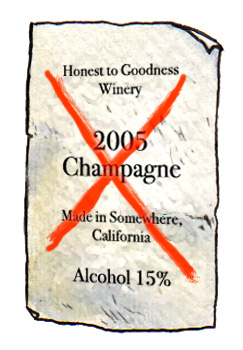L'entreprenariat comme moteur de l'économie américaine
Bien sûr, lorsqu'on pense aux Etats-Unis, aussi bien dans le domaine de l'Internet que dans les autres secteurs d'activité, on pense aux entreprises internationales gigantesques tels que Google, Coca Cola ou Microsoft qui domine leurs secteurs d'activité. Mais la réalité est que l'économie américaine est poussée vers le haut par les entrepreneurs. Carl Schramm parle de capitalisme entreprenarial, où l'économie est basé principalement sur l'entreprenariat.
La facilité de trouver des fonds
Carl Schramm explique que la capacité d'une entreprise à trouver des fonds aux Etats Unis est aux moins deux fois plus facile que n'importe quel autre pays. C'est aussi le secret de l'entreprenariat américain.
L'entreprenariat comme source d'emplois
Parce que l'économie américaine est portée par ces entrepreneurs, le marché de l'emploi est aussi très fort dans ce domaine. Ainsi, plus de la moitié des emplois crée l'année dernière ont été crée dans des entreprises de moins de 5 ans.
L'immigration comme source de développement
C'est bien l'un des enjeux de l'immigration. Un quart des entreprises créent dans la Silicon Valley ont été crée par des entrepreneurs n'étant pas nés aux Etats-Unis.
Il est donc important d'avoir une immigration de qualité, immigration qui fait la force des Etats-Unis. Ce pays a été basé depuis sa création sur sa faculté à attirer des personnes de différents univers pour faire prospérer le pays.
Et une petite blague pour finir
Je la trouve très bonne dans ce podcast. Le professeur parle des problèmes économiques de la France, et dit que Georges Bush a dit: "if French economy is in trouble right now, it is because there is no word in French to say entrepreneur ("si la France a des difficultés avec leur économie, c'est parce qu'ils n'ont pas de mot pour entrepreneur").
Donc l'entreprenariat est à la base du succès américain. Alors pourquoi pas en France! Nous avons des idées, des compétences, et un pays très attractif en terme de qualité de vie.
Qu'en pensez vous? Pensez vous que l'entreprenariat peut aider l'économie française? Que faudrait il faire pour aider l'entreprenariat français?

Blogged with the Flock Browser

 Le journal du Net
Le journal du Net
 Je voulais parler aujourd'hui du système de carpool aux Etats-Unis. C'est un système très efficace, et très pratique, puisqu'il permet de:
Je voulais parler aujourd'hui du système de carpool aux Etats-Unis. C'est un système très efficace, et très pratique, puisqu'il permet de: This is a very interesting question. It was actually the topic of a conversation I had with a friend of mine during a dinner. I was saying that I had problems to find in a US retailer some Champagne coming from our lovely region of Champagne.
This is a very interesting question. It was actually the topic of a conversation I had with a friend of mine during a dinner. I was saying that I had problems to find in a US retailer some Champagne coming from our lovely region of Champagne.
 gage recommendations
gage recommendations
 HEC alumni Nicolas Princen has been hired by French presidency as Internet monitor.
HEC alumni Nicolas Princen has been hired by French presidency as Internet monitor. Travaillant en ce moment dans l'industrie du prêt immobilier aux Etats Unis, j'ai la même impression. La crise du sub prime est bien plus profonde que l'on a voulu nous faire croise. Quand on voit certaines propriétés dans certains états avoir perdu en quelques mois la moitié de leur valeur, l'incroyable volume de maison à vendre aux enchères, mais aussi les nombreuses banques et investisseurs ayant fermé boutiques, on peut s'apercevoir de l'ampleur des dégâts.
Travaillant en ce moment dans l'industrie du prêt immobilier aux Etats Unis, j'ai la même impression. La crise du sub prime est bien plus profonde que l'on a voulu nous faire croise. Quand on voit certaines propriétés dans certains états avoir perdu en quelques mois la moitié de leur valeur, l'incroyable volume de maison à vendre aux enchères, mais aussi les nombreuses banques et investisseurs ayant fermé boutiques, on peut s'apercevoir de l'ampleur des dégâts. That is something that is very important to me, and also my girlfriend Susie, who as a language major graduate speaks 4 languages (English, Spanish, French and italian). A lot of people are speaking English as the international business language. That is a good thing, this is indeed the main language used for International business. But there are many advantages to speak other languages.
That is something that is very important to me, and also my girlfriend Susie, who as a language major graduate speaks 4 languages (English, Spanish, French and italian). A lot of people are speaking English as the international business language. That is a good thing, this is indeed the main language used for International business. But there are many advantages to speak other languages.
 I attended today a seminar organized by real estate agents
I attended today a seminar organized by real estate agents  Morph is a nano technologies based phone. Thanks to these technologies, it will have specific capacities that you can watch in the video upper in the article. It could then expend itself to become a keyboard, or shrink to use as a cell phone. You can even wear it like a watch around your wrist.
Morph is a nano technologies based phone. Thanks to these technologies, it will have specific capacities that you can watch in the video upper in the article. It could then expend itself to become a keyboard, or shrink to use as a cell phone. You can even wear it like a watch around your wrist.
 I attended yesterday a seminar held by
I attended yesterday a seminar held by